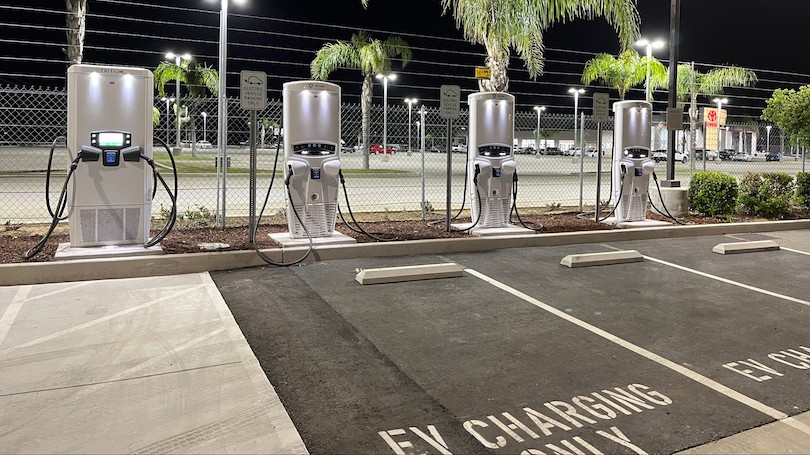Joint Office Announces National Charging Experience Consortium
May 18, 2023

The Joint Office of Energy and Transportation (Joint Office) announced the launch of the National Charging Experience Consortium (ChargeX Consortium), a new effort led by U.S. Department of Energy national laboratories that will work to rapidly develop solutions that ensure a reliable and frictionless charging experience for all Americans.
As part of the ChargeX Consortium, Argonne National Laboratory, Idaho National Laboratory, and the National Renewable Energy Laboratory will collaborate with organizations representing a cross-section of the electric vehicle (EV) charging industry on complex issues that require multi-stakeholder collaboration to solve and simplify. This effort aligns with the Joint Office mission to accelerate an electrified transportation system that is affordable, convenient, equitable, reliable, and safe and fulfills a specific mandate to plan, coordinate, and implement data sharing to inform the buildout of a national charging network.
"The national labs provide the independent expertise needed to fix the most challenging, systemic problems that can impact the customer charging experience," said consortium director John Smart of Idaho National Lab. "The national lab team shares a sense of urgency and has identified an aggressive timeframe that aligns with the United States' accelerating transition to electric transportation."
Already, the ChargeX Consortium has commitments to participate from the following organizations:
Additional organizations are invited to express their interest in joining the ChargeX Consortium by visiting chargex.inl.gov.
The ChargeX Consortium builds on the foundation for charging reliability established by the minimum standards for Federal Highway Administration Title 23 funded EV charging infrastructure projects. It also complements two other Joint Office-supported efforts:
-
The Joint Office Ride and Drive Electric Funding Opportunity Announcement that intends to improve EV charging performance and reliability by, in part, increasing commercial capacity for testing and certification of high-power EV chargers and validating high-power EV charger real-world performance and reliability.
-
The creation of a centralized data platform for EV charger data reporting that will facilitate and maximize access to data and insights that could inform future charging reliability analysis.
To further support these initiatives, the Joint Office has hired Sarah Hipel as its standards and reliability program manager. "Many companies are working hard to bring sophisticated electric vehicles, chargers, and charging networks to market, but it takes strong collaboration across the industry to ensure that the national charging network is reliable and user-friendly for all," said Hipel. "The ChargeX Consortium, paired with other Joint Office efforts, will amplify and safeguard public and private investment to grow and improve the quality of the nation's public charging infrastructure."
Improving the U.S. Charging Experience through Collaboration
Over the next two years, the national labs will collaborate with industry to measure and identify opportunities to significantly improve the customer experience with public EV charging infrastructure in the United States. The consortium sets a goal that public charging stations nationwide will provide a charge to vehicles the first time, every time. This new aspirational goal, while not enforceable, complements federal requirements of greater than 97% uptime to ensure that each customer can successfully and easily charge at public charging stations.
To make progress towards these outcomes, national laboratories will closely collaborate with organizations representing a cross-section of the EV industry to address three problematic areas:
-
Payment processing and user interface
-
Vehicle-charger communication
-
Diagnostic data sharing.
Teams working in these three areas will exchange information to help the national labs identify best practices to address common problems and share them with the entire industry.
The national labs will also work with consumer advocacy groups to inform ways to measure the customer charging experience and collect customer feedback to track industry improvement over time. Based on this work, the national labs will develop a blueprint for a voluntary program that recognizes charging station operators for providing an excellent charging experience.
Finally, the national labs will develop innovative solutions for testing EV and charger software before it is deployed to ensure that every electric vehicle works with every charger as the market grows.
For more information or to request to join the ChargeX Consortium, visit chargex.inl.gov.
